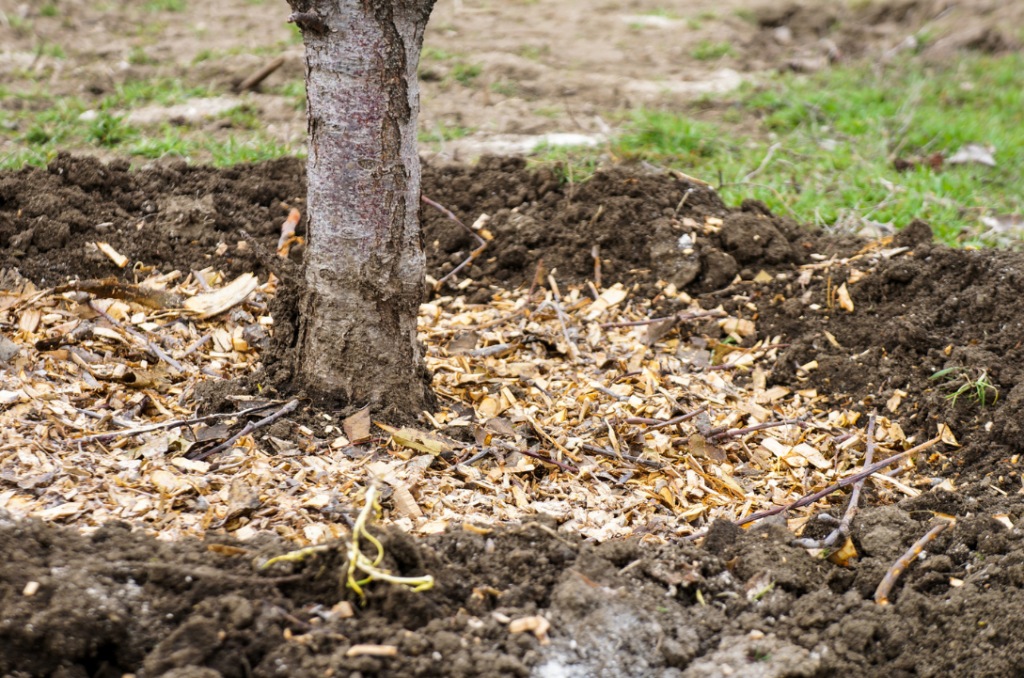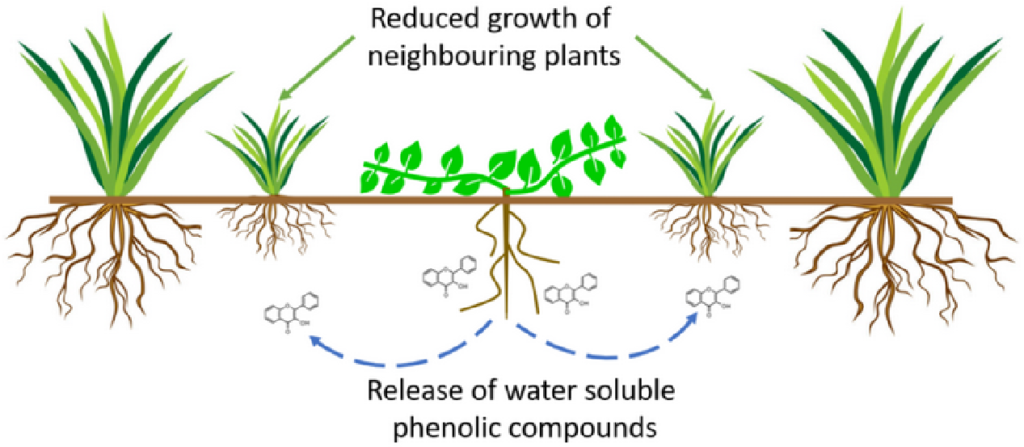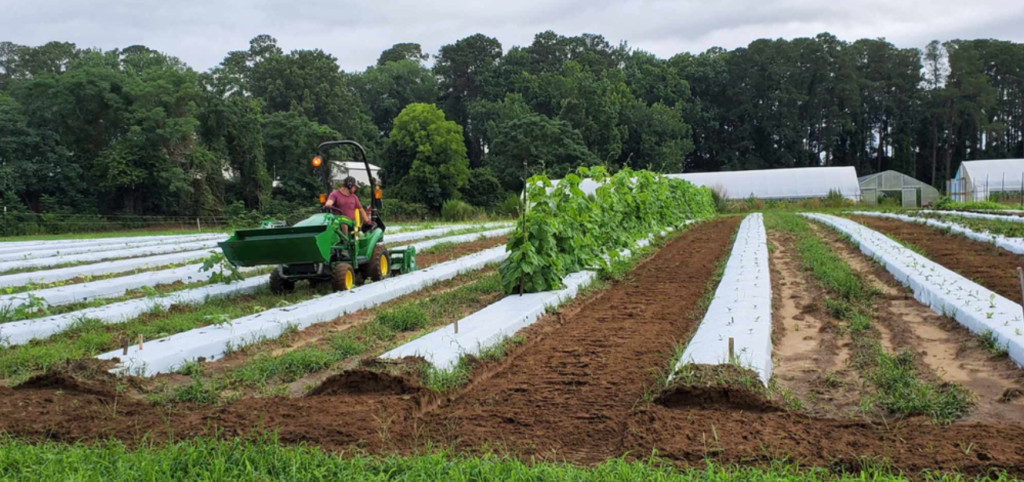Introduction
Weed management is a critical challenge in agriculture, with conventional methods often relying heavily on chemical herbicides and synthetic mulches. While effective, these approaches pose significant environmental risks, including soil degradation, water contamination, and the proliferation of herbicide-resistant weed strains. As the demand for sustainable farming practices grows, natural weed suppression techniques have gained prominence for their ability to balance productivity with ecological stewardship.
Organic mulching, allelopathy, and other natural strategies offer viable alternatives to chemical inputs, providing multiple benefits beyond weed control. These practices enhance soil fertility, improve water retention, and mitigate environmental impacts such as microplastic contamination. By leveraging plant-based materials and natural chemical processes, farmers can suppress weed growth while promoting biodiversity and long-term soil health.
The Role of Organic Mulching in Weed Suppression
Organic mulching is a widely adopted natural technique for suppressing weed growth while simultaneously enhancing soil health. By covering the soil with plant-based materials such as wheat straw, wood chips, cellulose pulp, and compost, mulching creates a physical barrier that limits sunlight access to weeds, inhibiting their germination and growth. Additionally, mulches contribute to the long-term improvement of soil quality by increasing soil organic carbon (SOC) and nitrogen content, essential for maintaining soil fertility.
One of the most effective mulches, compost, has been shown to significantly improve soil structure and water infiltration rates, reducing bulk density and promoting better root development. For instance, soils treated with compost achieved infiltration rates over 21 L/m² compared to 8.53 L/m² in unmulched soils, highlighting its potential to reduce erosion and improve irrigation efficiency. Similarly, high-carbon mulches like cellulose pulp and wood chips excel in weed suppression due to their slow decomposition rates, providing extended coverage and nutrient cycling.
Beyond weed control, organic mulches offer environmental benefits by reducing reliance on synthetic mulches, which are often linked to microplastic contamination. However, the success of mulching depends on the proper selection and management of materials, as high-nitrogen mulches can sometimes lead to nutrient leaching. When applied strategically, organic mulching serves as an effective and eco-friendly alternative for integrated weed management in sustainable agriculture.

Allelopathy: Nature’s Weed Suppression Mechanism
Allelopathy, the natural ability of plants to suppress the growth of neighboring weeds through chemical compounds, offers a sustainable and innovative approach to weed management. These chemical compounds, known as allelochemicals, are released into the environment through plant roots, leaves, or decomposition and can significantly inhibit weed seed germination, root elongation, and overall growth. This method not only minimizes reliance on synthetic herbicides but also aligns with ecological principles by leveraging natural processes to maintain crop health.
Certain plants are particularly effective in demonstrating allelopathic properties. For example, buckwheat (Fagopyrum esculentum) releases polyphenols that target herbicide-resistant weeds such as Lolium rigidum and Portulaca oleracea. Similarly, eucalyptus species produce essential oils with phytotoxic effects on invasive weeds like Sinapis arvensis, while triterpene saponins from quillaja species offer broad-spectrum weed suppression. The efficacy of allelopathic plants depends on factors such as the concentration of allelochemicals and the timing of their application, ensuring maximum impact on weeds without harming crops.
Allelopathy also promotes sustainability by preserving soil and water quality, as it reduces the need for chemical inputs. Additionally, it helps manage herbicide-resistant weed strains, a growing concern in conventional agriculture. However, further research is required to identify specific allelochemicals and understand their interactions with soil microorganisms. Field trials and studies on allelopathic plants under varying environmental conditions are essential to unlocking their full potential as a tool for natural weed suppression in agriculture.

Integrating Natural Weed Suppression into Sustainable Farming Systems
The integration of natural weed suppression techniques, such as organic mulching and allelopathy, into sustainable farming systems provides an effective pathway to reduce environmental impact while maintaining agricultural productivity. By combining these methods, farmers can address the limitations of individual practices and create holistic weed management strategies tailored to specific agroecosystems.
Organic mulches, for instance, can be paired with allelopathic cover crops to enhance both soil health and weed suppression. Cover crops like clover and ryegrass not only act as living mulches, competing with weeds for light and nutrients, but also release allelochemicals into the soil, amplifying their suppressive effects. This synergy reduces the reliance on chemical herbicides and improves biodiversity, creating a more resilient farming system.
Incorporating these practices also promotes long-term soil sustainability. High-carbon mulches, such as wood chips, contribute to improved soil structure and water retention, while allelopathic plants enrich the soil with organic matter during decomposition. Moreover, alternating high-nitrogen and high-carbon mulches prevents nutrient leaching, ensuring balanced soil fertility over time.

Conclusion
Natural weed suppression techniques, such as organic mulching and allelopathy, offer effective and environmentally sustainable alternatives to conventional chemical herbicides. These methods not only address the pressing challenge of weed management but also contribute to improved soil health, water retention, and biodiversity. Organic mulches create physical barriers that suppress weed growth while enriching the soil with organic carbon and nitrogen, whereas allelopathic plants leverage natural chemical processes to inhibit weed development and manage herbicide-resistant strains.
Integrating these techniques into farming systems can reduce dependence on synthetic inputs, mitigate environmental risks such as microplastic contamination and nutrient leaching, and foster resilience in agricultural ecosystems. However, successful implementation requires proper material selection, strategic application, and farmer education. By adopting natural weed suppression methods, agriculture can achieve a harmonious balance between productivity and ecological stewardship, paving the way for a more sustainable and regenerative future.
References
- Organic Mulching for Sustainable Weed Control: Impacts on Soil Quality and Crop Productivity. Journal of Agroecology and Sustainable Practices, Vol. 18, Issue 4, 2024.
- Allelopathy in Agriculture: Harnessing Natural Plant Defenses for Weed Management. Plant Science and Innovation Journal, Vol. 12, Issue 6, 2023.
- Organic Mulching: A Sustainable Technique to Improve Soil Quality. Sustainability, Vol. 16, Article 10261, 2024.


